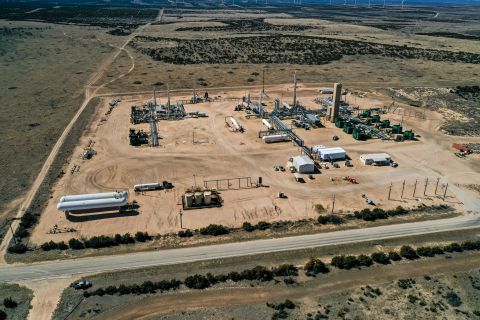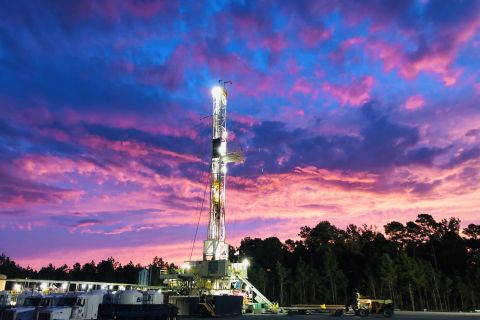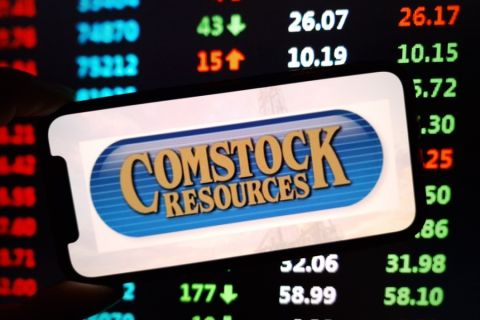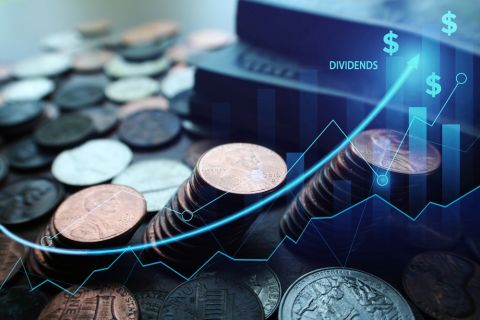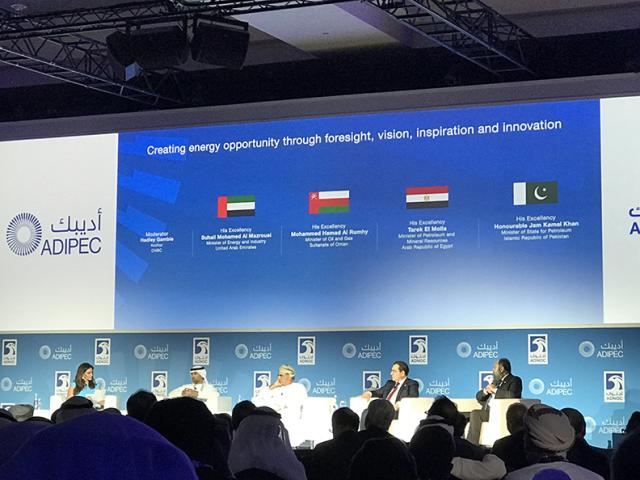
(Source: Abdelghani Henni)
ABU DHABI—The oil and gas industry is going through radical changes towards building models for success as oil market sentiment improved, following recent years of reduced capital expenditure, according to panelists speaking at Abu Dhabi International Petroleum Exhibition and Conference (ADIPEC).
Key to this new model is integration of different segment of the business in order to have a resilient portfolio, according to Rainer Seele, CEO of OMV. Seele also said that businesses will need integrated cooperation for the future.
“We’ve seen stable business models of integrated companies.”
Musabbeh Al Kaabi, CEO, Petroleum and Petrochemicals, Abu Dhabi’s Mubadala Investment Company, said that the current state of the industry requires resilient portfolio. “The integrated business is more resilient—we have the right scale and we are ready for any oil price going forward,” Al Kaabi said.
His company was formed following the merger of Mubadala Development Co. and International Petroleum Investment Co.
The new model of success will also be based on improving efficiency across the industry value chain. Russia’s Lukoil has been focusing on improving efficiency at its oldest oilfields and now it has improved production and efficiency, while increasing its reserves, according to Vagit Alekperov, president, member of the board of directors, chairman of the management committee at Lukoil.
“The government of Russia shared its risks with us and gave us the opportunity to expand,” he said. “We are confident about our future and in being a reliable partner in major projects in Mexico, Iran and Iraq.”
Focusing on efficiency has helped Russian companies to boost their productivity, according to Alexander Medvedev, deputy chairman of the management committee at Gazprom, who said that his firm has produced a record 190 billion cubic meters of gas this year.
“We’re sure no one else can compete with us because of effective production and delivery,” Medvedev said during a panel session. “We are confident our gas was, is and will remain competitive in Europe. But we are looking at China. For pipeline LNG, we’re sure will be reaching everywhere LNG will be needed.”
Sultan Ahmed Al Jaber, CEO of Abu Dhabi Nation Oil Company (ADNOC), said that fundamentals of the global economy are positive with promising future.
“The state of our industry is very strong,” he said. “Despite this positive outlook, we cannot ignore the shifting dynamics of global energy use. We must act nimbly, think creatively, and challenge our traditional business models, and at ADNOC we are facing the future to create a new type of National Oil Company.”
While integration and efficiency are key for the success model of the industry, policy makers stressed the importance of win-win partnership that are competitive and long-lasting that support healthy oil prices. UAE’s Minister of Energy and Industry Suhail Al Mazrouei.
“We want to see two ways partnerships, where we give them opportunity to invest and we invest with them,” he said. “I think it is going to be a very strong recovery year, and we will see more investments coming to the region.”
Al Mazrouei also said that healthy oil price level is no longer determined by national oil companies (NOCs) production management but rather by the levels of investment needed for the industry to flourish.
Al Mazrouei also said that companies are shifting their focus on gas investment. “I think there is a new wave of newcomers as this is a competitive market as well,” he said. He also said that there are more projects are anticipated with countries that were historically producers and are now consumers such as Japan, Korea, China and India.
Mohammed Hamad Al Rumhy, minister of oil and gas for Oman also stressed the importance of gas and the opportunities it offers in term of economic diversification.
“LNG is playing a growing role in and around the region with countries from Jordan to Japan building receiving terminals, including producing and new emerging countries such as Pakistan,” Al Rumhy said. “Things are changing very fast and its becoming an important market. The challenge has been to find enough gas and our project Khazzan field will play a big role in this.”
Oman’s oil field Khazzan started production in September, which is jointly operated by BP and Oman Oil Company Exploration and Production. Phase one of the Khazzan development made up of 200 wells.
Recommended Reading
Midstream M&A Adjusts After E&Ps’ Rampant Permian Consolidation
2024-10-18 - Scott Brown, CEO of the Midland Basin’s Canes Midstream, said he believes the Permian Basin still has plenty of runway for growth and development.
Post Oak-backed Quantent Closes Haynesville Deal in North Louisiana
2024-09-09 - Quantent Energy Partners’ initial Haynesville Shale acquisition comes as Post Oak Energy Capital closes an equity commitment for the E&P.
Analyst: Is Jerry Jones Making a Run to Take Comstock Private?
2024-09-20 - After buying more than 13.4 million Comstock shares in August, analysts wonder if Dallas Cowboys owner Jerry Jones might split the tackles and run downhill toward a go-private buyout of the Haynesville Shale gas producer.
Aethon, Murphy Refinance Debt as Fed Slashes Interest Rates
2024-09-20 - The E&Ps expect to issue new notes toward redeeming a combined $1.6 billion of existing debt, while the debt-pricing guide—the Fed funds rate—was cut on Sept. 18 from 5.5% to 5%.
Dividends Declared Sept.16 through Sept. 26
2024-09-27 - Here is a compilation of dividends declared from select upstream, midstream and service and supply companies.
Comments
Add new comment
This conversation is moderated according to Hart Energy community rules. Please read the rules before joining the discussion. If you’re experiencing any technical problems, please contact our customer care team.


